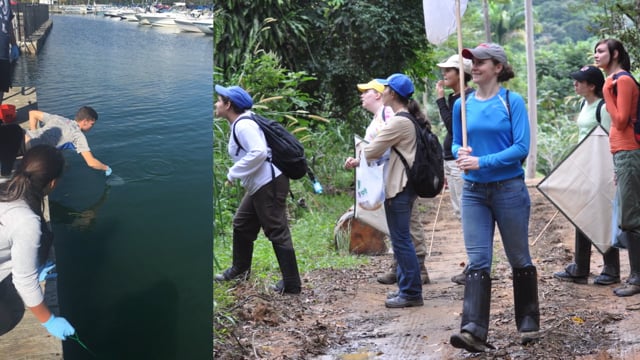Biology
Degree
Bachelor of Science, Major, Minor
School/College
College of Arts & Sciences
The Biology Department at üСÜꪤüýò¿Øéó is dedicated to delivering an excellent, comprehensive education to our students. Throughout their course of study, students are given innovative classroom instruction along with hands-on experience in labs, providing them with a deep appreciation and understanding of the diversity of living things, their adaptations to the environment, and their evolutionary and ecological relationships.
Find Out More
Course Requirements
67-71 credits
18-20
Contact Us
Undergraduate Admission
admis@fairfield.edu
(203) 254-4100
Internships
Internships provide the opportunity for practical experience in a career field related to your major. Most departments offer credit for internships in appropriate agencies and business firms. This experience is optional in the senior year for qualified students and may be undertaken for a maximum of 6 academic credits for a year-long program. Research and internship experiences are extra courses and do not count towards the biology major degree requirements.
Recent Placements
- St. Vincent's and Bridgeport hospitals
- Hartford, Danbury, Norwalk, Waterbury and Stamford hospitals
- The Hospital of St. Raphael in New Haven
- üСÜꪤüýò¿ØéóCounty Rehabilitation Center
- The Maritime Center in Norwalk
- Bridgeport Regional Aquaculture School
- Bridgeport Hydraulic Company
- Stratford Conservation Commission
- Connecticut Audubon Society
- Connecticut's Beardsley Zoo
- Earthplace
- Environment CT and ConnPIRG
- The offices of various medical practitioners
ãI would recommend exploring all the different branches of Biology; üСÜꪤüýò¿Øéóoffers a diverse range of biology courses and there is a great variety to choose from.ã
- Caitlin Fanella ã25







